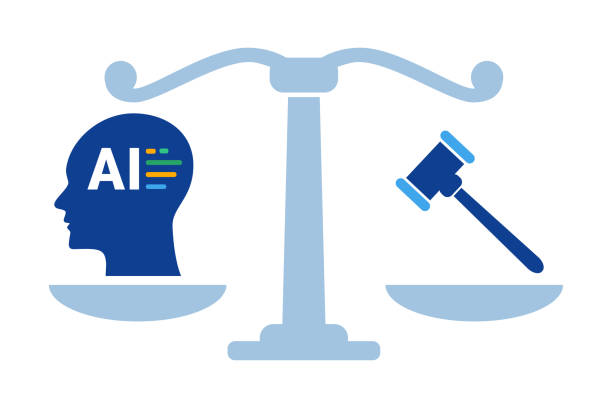While voice assistants in industries continue to gain popularity to improve the flow of processes, customer relations, and organization effectiveness, there is a rising debate about ethical AI deployment. The potential for misuse of these AI technologies, AI privacy concerns, especially when dealing with services as sensitive as healthcare, finance, and mental health, and the accountability question—all reasons ensuring that the implementation of AI Technologies meets specific standards is essential. Understanding AI about the flow of data, human control of the system’s decision-making process, and the psychological aspect of using machine assistance all need to be trustworthy. Ethical issues in using AI voice agents are discussed in this article, and the latest studies and statistics are provided to articulate effective strategies for utilizing AI.
1. Privacy and Data Security
Emerging ethical considerations have increased awareness of the importance of protecting data, and hence, AI data privacy concerns are now a sensitive issue. A Stanford University paper emphasizes that current data privacy regulations are insufficient in fully addressing the risks posed by AI systems, urging stricter compliance with data protection laws in the AI era. In the healthcare industry, for instance, AI voice agents deal with large volumes of information belonging to patients, and their outcomes could be catastrophic. It is impossible to avoid following requirements like HIPAA and GDPR because of user information security. Responsible AI practices these days require data anonymization and advanced encryption methods to be implemented.
2. AI Bias and Fairness
Bias is known to be a problem within AI systems mainly because they have been trained on partial or biased data sets. A report by Thomson Reuters highlights the ongoing challenges in mitigating bias in AI systems, suggesting the need for more transparent algorithms and regular audits. To achieve this, it is necessary to attain diversity and balance of data sources, regular assessments, and, most importantly, the explainability of algorithms’ decisions in fields that can most suffer from bias, such as finance and healthcare.
3. Transparency and Accountability

Crucial for sensitive industries is transparency about both the function of AI and its decision-making method. The Congressional Research Service stresses the importance of developing policies that ensure transparency in AI decision-making, particularly in sectors like healthcare, where AI systems must align with strict ethical guidelines. Organizations and companies must play an essential role in educating users about situations where they are interacting with AI systems. Implementing explainable AI (XAI) systems can clarify how AI agents arrive at their decisions and promote accountability. Also, firms need explicit protocols for their employees to intervene if AI errors increase.
4. Autonomy and Human Oversight
Using AI voice agents for essential decisions without any help from human observers may create mistakes. According to the 2024 McKinsey Global AI Survey, failure with AI was attributed to a lack of human role in decision-making processes in 60% of cases. Failures of AI diagnoses that remain unchecked by humans inside the health sector could be deadly. Still, non-human oversight of algorithmic loan decisions in finance may go against key detailed and contextual considerations. Monitoring the control of humans for essential decisions reveals that AI systems collaborate with human expertise, not in place of it.
5. Emotional and Psychological Impact
The emotional intelligence of AI voice agents is not enough to fully fulfill user requirements in fields like mental health. The American Psychological Association reported in 2024 that 67% of users preferred counselorsemotional support from human counsellors over AI tools. If we too greatly depend on AI for emotional support, it could fail to meet the expectations for real psychological support. To work through this, organizations should capitalize on AI-driven voice agents for the earliest triage, having proficient human professionals readily available for sophisticated and emotionally engaging cases.

6. Job Displacement and Economic Impact
The addition of AI in primary sectors is causing fears about job decline. According to the 2024 Future of Jobs Report from the World Economic Forum, by 2025, disruption from AI and automation is likely to eliminate 85 million jobs, with healthcare and finance in the firing line as being among the most affected industries. Although AI improves process efficiency and organization, organizations must take it upon themselves to upskill and reskill the workers who lose their jobs owing to automation. This equilibrium is essential to achieve a beneficial economic effect and preserve workforce stability.
Real-World Case Studies
Various organizations have already initiated their response to these ethical issues. To ensure defence, Google has enhanced privacy by adopting strong encryption for important voice details. Engaged in work concerning AI bias and fairness, Microsoft regularly performs audits to locate and alleviate the biases within its AI systems. These firms present a roadmap for other organizations desiring to integrate AI responsibly, especially in charts related to healthcare and finance.
User Education
Engaging users in discussions about AI voice agents is critical to support ethical AI deployment. Users must grasp the instances in which they interact with AI and how their data is being deployed. IBM’s 2024 AI Ethics Report points out that 80% of people are more inclined to trust firms that transparently share how AI technology operates in customer interactions. Organizations ought to make clear guidelines and FAQs available to educate users about how to raise AI privacy concerns with human professionals.
Conclusion
Employment of AI voice systems in critical sectors directs attention to the need to manage them ethically to maintain authenticity, equity, and performance. Health, finance, and mental health will earn public trust through ethical AI deployment and responsible AI practices. Privacy, bias, transparency, and human oversight should be the integral components of an AI voice agent.
At ServQuik, we believe in prioritizing ethical AI deployment efficiency and responsibility. If you want ethical AI deployment of voice agents while maintaining responsible AI practices, please explore how we can help.
Tags:
voice sentiment analysis, Ethical AI deployment, AI privacy concerns, AI bias and fairness, Responsible AI practicesOct 2, 2024


Comments